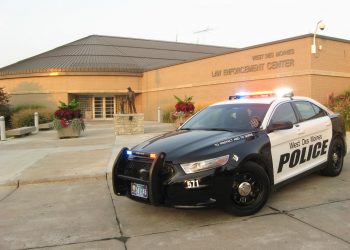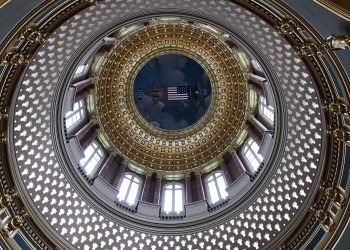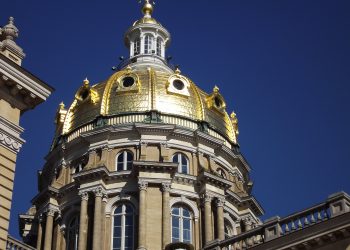(The Center Square) – Iowa legislators are considering a pair of bills that would add protections for public school employees who safeguard the freedom of expression of students, including journalism advisers of students producing school newspapers.
HF 509 was introduced on February 15 and referred to the Iowa House Labor Committee, while SF 238 was introduced on February 3 and referred to the Iowa Senate Education Committee, which met about the bill on February 8.
The bills would make it illegal to dismiss, suspend, discipline, reassign, transfer, subject to termination or nonrenewal of a teaching contract or an extracurricular contract, or retaliate against a public school employee or official for protecting students’ freedom of expression that is legal under Iowa law, the Iowa Constitution or the first amendment of the U.S. Constitution.
Currently, Iowa code section 280.22 states that “public school district and school employees or officials shall not be liable in any civil or criminal action for any student expression made or published by students” unless they have “interfered with or altered the content of the student speech or expression, and then only to the extent of the interference or alteration of the speech or expression.”
Johnston High School newspaper adviser and teacher and Iowa State Director for the Journalism Education Association Leslie Shipp said that cases in student journalism in which students wish to cover an issue that “the school might not really like” can leave advisers in a tricky position. They are legally required to protect students’ legal expression of expression, even if a school administration asks the adviser to “stop the story,” she said.
“Sometimes students are fearful for their adviser’s job so they just self-censor, and they won’t cover certain things because they think that that will get their adviser in trouble,” Shipp told The Center Square in a phone interview.
She said that fear impacted her students from the previous school year who ultimately decided not to cover certain stories and that advisers, including her, have been fearful of losing their jobs. Shipp said one of the purposes of the bill is to ensure that changes in leadership at school districts do not change the protections for school staff.
“The First Amendment is really important. It’s the basis of a democracy, where we have to exchange ideas and we have to talk about things. And we have talked about things that we’re uncomfortable with, and it’s ok to do that,” Shipp said. “Instead of hiding from things like that, and not wanting things to be published about stuff that we don’t want to talk about, we really have to have discussions. So my hope is that if this is passed as law, that maybe schools and boards and community members will better understand – and it will bring attention to – that the first amendment is really important for all of us, no matter what our viewpoints are.”
The bill also provides that “an aggrieved person” can seek civil action, and that if the plaintiff is a student, that action will not expire upon his or her graduation from the school where the event occurred.
















